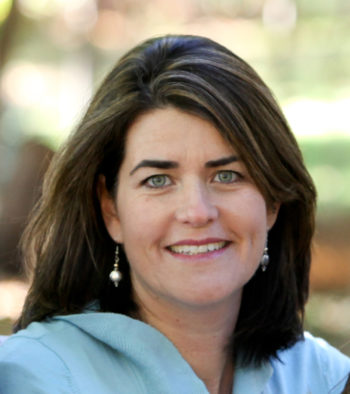It seems that a week does not go by without another stark warning about climate change and the closing window to mitigate its worst impacts. The most recent reports from the Intergovernmental Panel on Climate Change are nothing less than scary. Increasingly, warnings have not only been coming from scientists making predictions and showing us models of what the future holds; rather, we have been witnessing climate change in real time. Think of the record heat waves, the wildfires, the floods, the droughts, and the hurricanes in recent years. All of these natural disasters are occurring with increased frequency and intensity. It is overwhelming to think about and difficult to figure out how any of us can make a difference.
Honestly, I sometimes find it easier to push climate change to the side, to stop listening and to focus on other priorities, those where it is easier to see a pathway for change and impact. We are not, after all, primarily a climate-focused funder. CEP’s recent report, Much Alarm, Less Action: Foundations & Climate Change, shows that I am not alone.
In the early years of Imago Dei Fund, there was a focus on what we called “creation care”: mostly supporting faith-based actors to use their platforms to raise awareness about environmental issues and the need for all of us to do our part to care for creation. However, as the foundation moved away from project-based support to multi-year general operating support, how we talked about climate and environmental issues shifted. We came to see it as one thread in our holistic approach to philanthropy and were happy to fund a few climate-oriented organizations. That said, to be honest, without a clear mandate, it fell way down the priority list.
And, yet in the past couple of years it has become increasingly clear that climate change is a priority for many of our grantee partners and that it intersects with all of the issues we care about.![]() My colleagues and I hear about the direct and indirect impacts of climate change in our conversations with grantee partners — how it is affecting their organization’s goals and the day-to-day work as well as the initiatives that are emerging in response.
My colleagues and I hear about the direct and indirect impacts of climate change in our conversations with grantee partners — how it is affecting their organization’s goals and the day-to-day work as well as the initiatives that are emerging in response.
Based on what we were hearing from grantee partners as well as our own understanding of the existential threat climate change poses, Image Dei Fund began a learning journey around climate change a few months ago through what we call our Frontier Fund. We wanted to deepen our understanding of the issue, analyze how it intersects with the work of our grantee partners, understand how other foundations were mobilizing to address it, and identify opportunities for engagement.
As part of this learning journey, we dug into reports and data, heard from experts, looked carefully at the work of Project Drawdown, which focuses on the range of solutions that exist today to help draw down carbon. In addition, as a team, we read and discussed “All We Can Save,” a powerful collection of essays from women around the world that lifts up the power that each of us holds to make change and offers insight into different pathways to engage with the climate movement. The United Nations’ Secretary-General António Guterres has warned that the world is “sleepwalking to climate catastrophe.” The reports and data we dug into as well as our reading of “All We Can Save” were a wake-up call and an invitation to action.
What has become clear to me in this learning journey is that taking the time to listen to the stories from grantee partners and from frontline communities is critical.![]() It allows us to engage on a human level and to see how climate change intersects with so many of the issues we care about like poverty alleviation, gender equity, migration and displaced people, agriculture, girls’ education, health and well-being, and the list goes on. Like so many, we are feeling the urgency to do more.
It allows us to engage on a human level and to see how climate change intersects with so many of the issues we care about like poverty alleviation, gender equity, migration and displaced people, agriculture, girls’ education, health and well-being, and the list goes on. Like so many, we are feeling the urgency to do more.
As Imago Dei Fund begins our strategic planning process this summer, it is my hope that we will find ways to integrate what we have learned and to lift up climate change as a key issue in our future work. I believe there is an opportunity, indeed a responsibility, for all of us to lean into a journey of learning and increased action around climate. The time for just alarm is over.![]()
Sheila Leddy is a program partner at the Imago Dei Fund. She was previously executive director of The Fledgling Fund.




